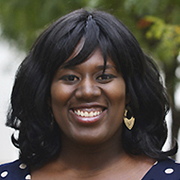A .gov website belongs to an official government organization in the United States.
A lock () or https:// means you've safely connected to the .gov website. Share sensitive information only on official, secure websites.

Aerosols, or particles, emitted into the air have adverse effects for regional air quality and health. In addition, aerosols significantly impact earth’s climate and the hydrological cycle. They can directly reflect the amount of incoming solar radiation into space; by acting as cloud condensation nuclei (CCN), they can indirectly impact climate by affecting cloud albedo. Our current assessment of the interactions of aerosols and clouds is uncertain and parameters used to estimate cloud droplet formation in global climate models are not well constrained. Understanding the chemical and thermodynamic properties that control the ability of particles to form droplets, CCN activity, and droplet growth are necessary for constraining impacts on particle transport, particle inhalation, the hydrological cycle and uncertainties from the aerosol indirect effect. In this presentation, we discuss and identify fundamental parameters that affect aerosol formation and droplet growth from unique sources and diverse environments.
Akua Asa-Awuku is an Associate Professor at the University of Maryland, College Park. She received her Ph.D. in Chemical Engineering from the Georgia Institute of Technology in 2008. She also earned her M.S in Chemical Engineering at Georgia Tech in 2006. She received her B.S in Chemical Engineering from the Massachusetts Institute of Technology in 2003. In 2008, Dr. Asa-Awuku served as a Camille and Henry Dreyfus Postdoctoral Fellow at the Center for Atmospheric Particle Studies and Chemical Engineering Department at Carnegie Mellon University. She is a recipient of an NSF CAREER Award and EPA-STAR Grants. Dr. Asa-Awuku's primary research interest is understanding and predicting aerosol sources and interactions with water. Her research explores the water-uptake of complex particles as it pertains to aerosol hygroscopicity, cloud condensation nuclei activation and droplet growth.
ALL Seminar attendees agree not to cite, quote, copy, or distribute material presented without the explicit written consent of the seminar presenter. Any opinions expressed in this seminar are those of the speaker alone and do not necessarily reflect the opinions of NOAA or CSL.